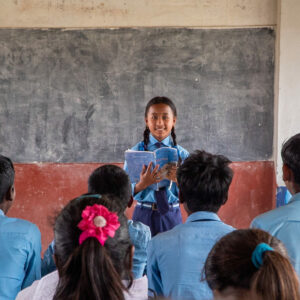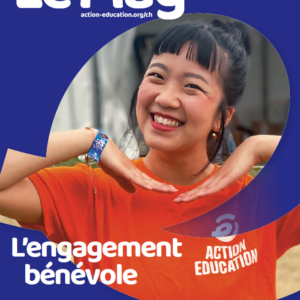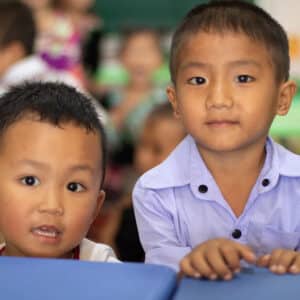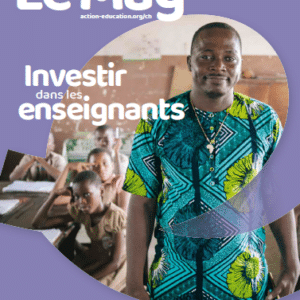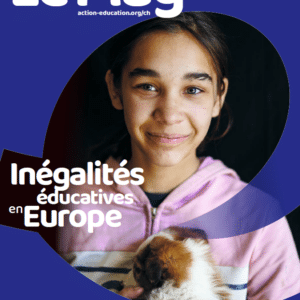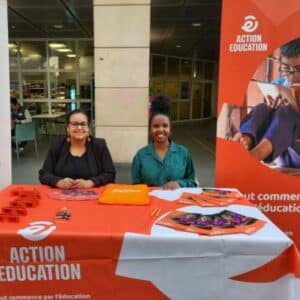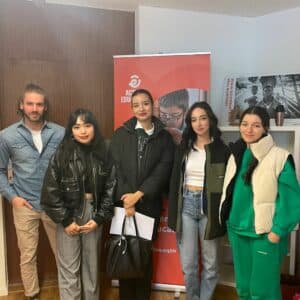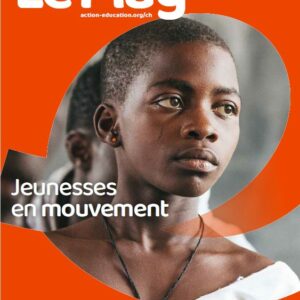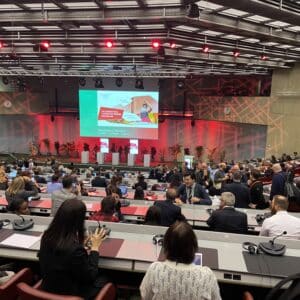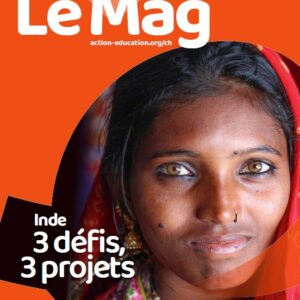Aide et Action: On the occasion of the 8th of March, International Women's Day, a solidarity soap is on sale in L'OCCITANE boutiques. How did this initiative come about? And what is the purpose of this soap?
Carole AUBERT: For the past three years, on the occasion of Women's Day, L'OCCITANE has created a soap in honour of the women of Burkina Faso. This soap is made by Burkinabè women from an artisanal soap factory who have been trained in L'OCCITANE know-how. 100 % of the profits of this soap are donated this year to Aide et Action to support the Muso Kalan programme, a literacy programme for women in Burkina Faso, of which the Foundation has been a partner since 2009.
The aim of this soap is twofold: to involve L'OCCITANE's customers in the projects supported by the Foundation and to raise awareness among the general public about development issues and the emancipation of women in Burkina Faso.
Aide et Action: What does Women's Day mean to the L'OCCITANE Foundation? Is it still useful? Are there any other events planned by the Foundation on this occasion?
Carole AUBERT: Women's Day is a key moment for L'OCCITANE and its Foundation to highlight the actions implemented for the women of Burkina Faso and to raise awareness among the general public. It is often a very busy date in terms of events and communication. Nevertheless, it allows us to speak out on important issues.
In addition to the soap available in all L'OCCITANE shops, the Foundation has two other actions for this Women's Day 2013:
The Foundation is a partner in a documentary film "La part des femmes" produced by Imagéo and directed by Felix Vigné. This film tells the story of five Burkinabe and Togolese women who are shaking up their environment by asserting themselves as equal women.
A screening is planned at the cinema in Forcalquier, as part of the Festival Femmes en Scène, on Friday 8 March at 6.30pm.
Other broadcasts are currently being planned.
The Foundation is also a partner of the exhibition "Regards croisés: portraits of women in responsibility in the 3rd and in the World". Alongside the Parisian images, the Foundation presents portraits of Burkinabe women who, thanks to its support for women's entrepreneurship, have been able to learn to read, start or strengthen their business in order to become more autonomous and conquer a different place in society.
From 4 to 14 March at the Mairie du 3eme arrondissement de Paris - Opening on 6 March at 6.30 pm
Aide et Action: If L'OCCITANE is a well-known cosmetics brand in France, the L'OCCITANE Foundation is much less known to the general public. What exactly is the purpose of this foundation? What is its role?
Carole AUBERT: A corporate foundation is a legal structure that makes it possible to set up sponsorship actions by one or more companies over the long term.
Since its creation in 1976, L'OCCITANE has been committed to actions of general interest with a real impact on the ground.
In 2006, L'OCCITANE decided to create its Foundation to support and gather these initiatives. With a budget of €1,000,000 on average per year, the L'OCCITANE Foundation supports projects in two areas: support for the visually impaired and women's entrepreneurship in Burkina Faso.
Aide et Action: How does the Foundation select the projects it supports?
The strategic directions and budgets are defined by the Board of Directors which meets twice a year. The Board is composed of members of the Group's management, the Foundation and qualified directors.
The Foundation issues calls for projects according to the chosen areas. The projects received are then selected by selection committees (1 committee per field each year) which study the projects according to specific criteria (impact on the field, sustainability of the actions, etc.)
Current calls for projects are available on our website for visual impairment HERE for women entrepreneurship HERE
Aide et Action: How many and what are they?
Carole AUBERT: In each of the two fields of action, the Foundation supports about ten projects per year.
In the field of visual impairment, the Foundation supports projects in France aimed at the professional integration of these people (awarding of training grants, support for innovative professional training). In developing countries, it supports programmes to combat avoidable blindness (operations, training of medical staff).
In the field of women's entrepreneurship, the Foundation acts on three pillars: it promotes the acquisition of basic skills and knowledge by supporting literacy programmes, it provides financial and technical resources through its support for microcredit programmes and its training in income-generating activities. Finally, it promotes entrepreneurial actions and enables a change of scale by supporting the creation and development of small businesses. Since its creation in 2006, more than 1,000 women have been able to follow a literacy course (3 years) and more than 8,700 women have been supported in developing and strengthening their business.
Aide et Action: What is your vision of the Foundation's mission in the medium/long term in general? And particularly in favour of women's economic emancipation and female entrepreneurship?
Carole AUBERT: The L'OCCITANE Foundation strives in all the projects it supports to develop the autonomy of the beneficiaries and the structures concerned. The Foundation's support must enable the start of development actions that can then become sustainable and autonomous. We do not want to be in a logic of assistance and we work with all our partners on the sustainability of our actions.
On women's entrepreneurship, the Foundation seeks to develop an entrepreneurial spirit among women and to give them the means to carry out their projects. Today, women's entrepreneurship is the best way to promote the economic emancipation of women.
Aide et Action: In addition to the literacy centres for women shea butter producers in Burkina Faso, the L'OCCITANE Foundation has decided to support another project led by Aide et Action. What is this project? Can you tell us a bit about it and explain why it was selected by the L'OCCITANE Foundation?
Carole AUBERT: We have been working for two years now on the implementation of an integrated development project called MAM (Maraichage, Literacy and Microcredit).
This project is based on an innovative model inspired by the United Nations Millennium Villages. The idea of these Millennium Villages is to propose a global development with work on all the components necessary to improve the living conditions of the population.
We have co-constructed this project with 3 partner structures: 2 NGOs (Aide et Action, SoS Sahel) and a Microfinance Institution Assiena.
The project will be officially launched this month in a pilot village in Koundougou in southwestern Burkina.
It has 4 specific objectives:
Supporting women in the creation and management of income-generating activities
To improve the coverage of the educational needs and performance of the learners in the education centre
Supporting women in agricultural entrepreneurship with training
In a transversal way, to develop eco-citizen behaviours within the beneficiary population
In the long term, if this model works well and has a convincing impact, the objective will be to develop this project in other villages and to try to bring in other financial partners in areas that the L'OCCITANE Foundation does not support (for example: water and sanitation).
> More information on the Foundation at fondation.loccitane.com or facebook.com/fondationloccitane



